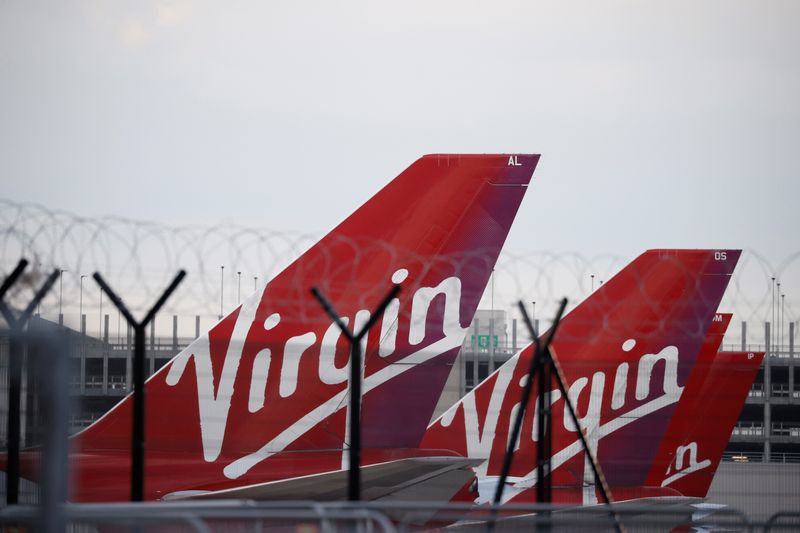LONDON (Reuters) – Virgin Atlantic has started testing cabin crew and pilots for COVID-19 on some flights, as industry hopes grow the British government is close to allowing more widespread airport testing that could help the country’s travel sector recover.
Virgin Atlantic, which needed a rescue deal to help it survive the pandemic, said it would offer pilots and crew a test before they depart from Heathrow Airport with results provided in 30 minutes, to help give passengers confidence about flying.
Virgin and other UK-based Airlines including British Airways and easyJet are desperate for passenger numbers to rise but say demand is being held back by Britain’s 14-day quarantine rules for arrivals from most countries.
They have been calling for COVID-19 tests at airports as an alternative.
Stephen Barclay, Britain’s deputy finance minister, suggested on Saturday that an announcement from transport minister Grant Shapps and health minister Matt Hancock on airport testing could come “in the coming days”.
But Prime Minister Boris Johnson’s spokesman did not confirm this timeline when asked on Monday.
“Work is ongoing with clinicians and health experts on the practicalities on using testing to reduce the self isolation period for international arrivals and we remain in regular contact with the sector,” the spokesman told reporters.
Travel remains at very low levels compared with before the pandemic. In August, Britain’s busiest airport, Heathrow, saw fewer than a fifth of the number of passengers it usually does.
Barclay told the discussion at the Conservative Party’s annual conference that the government had been looking at airport testing in Germany, where a negative test allows travellers to be released early from quarantine restrictions.
Virgin said it would start the testing on pilots and crews on flights to Shanghai and Hong Kong first.
“However, we continue to call for the swift introduction of a wider coordinated passenger testing regime,” the airline said in a statement.
(Reporting by Sarah Young, additional reporting by Elizabeth Piper; Editing by Alex Richardson and Mark Potter)





















